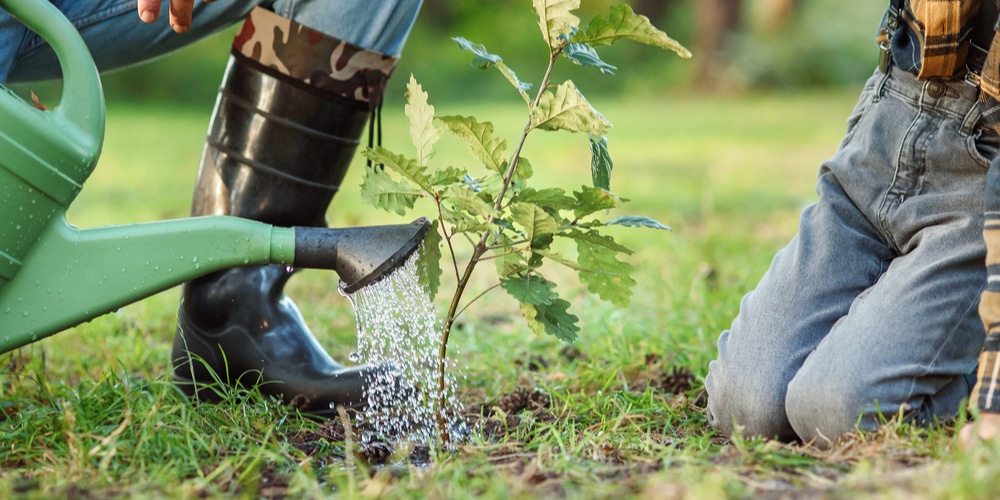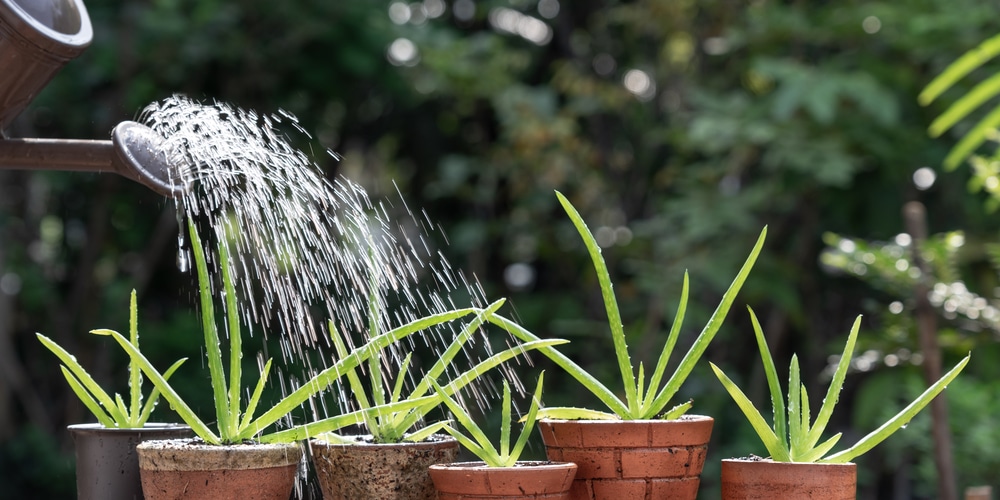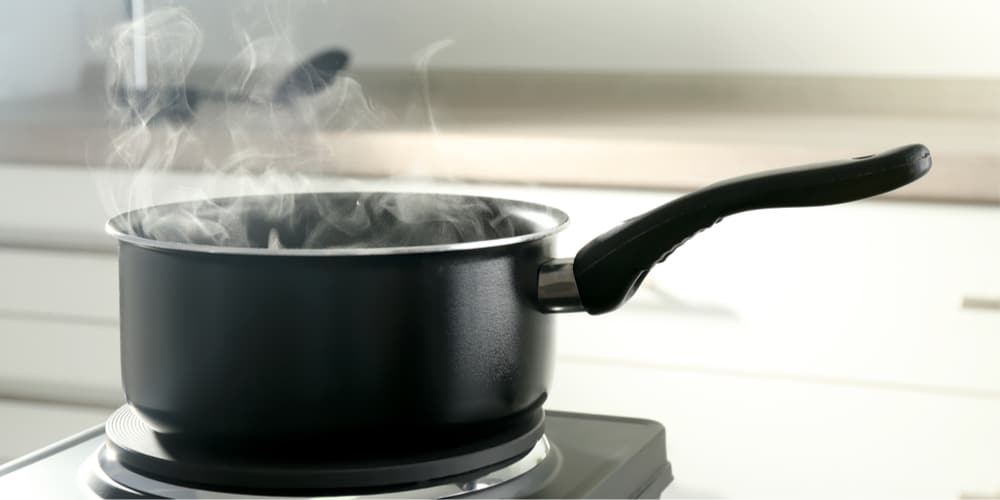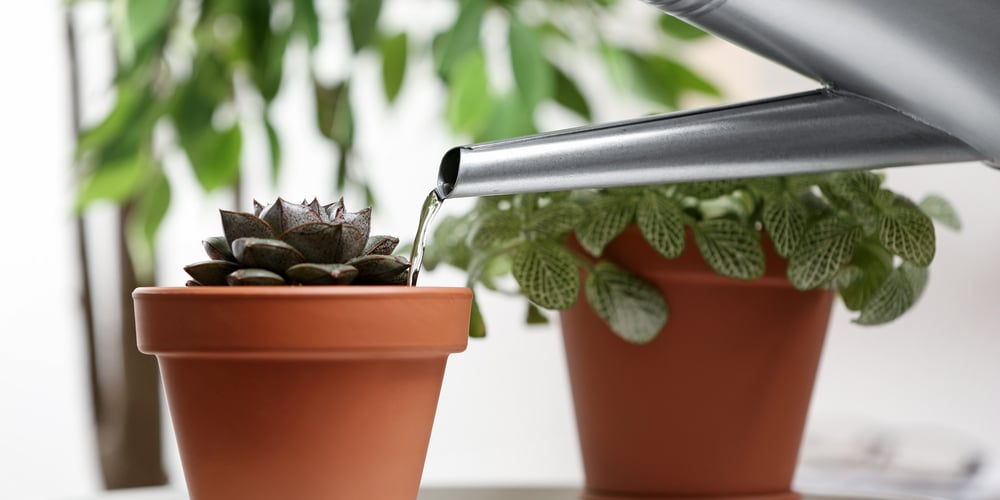It’s easy to assume that you can use any water, including tap water, for your plants. However, in some cities and regions, it may not be recommended. That said, can you water your plants from the hose? Read on to find out how to make tap water safe for plants.
Can You Use Tap Water for Plants?

It’s generally safe to use tap water for your plants. You can water from the hose (if you have a sizable garden or a good number of plants) or use a watering can and most of your plants will be just fine. Some plants are more sensitive to fluoride or chlorine, which will show up in the form of leaf yellowing and stunted growth.
Tap water is okay to use for plants, and they might even benefit from trace minerals in it. However, in some cities, suburbs, or states, water quality might be different- it may contain high levels of chlorine, salt, calcium, fluoride, or limestone, or have a high pH as well as contaminants that can prove to be harmful to your plants’ well-being.
If you don’t want to second-guess whether or not you can use tap water or hard water for your plants, then there are several things you can do to make tap water safe. You can use tap water but you have to make sure to clean it first.
Ways to Make Tap Water Safe for Houseplants
Here are three things you can do to make tap water safe to use for your houseplants:
Let Sit for 24 Hours
One of the easiest ways to remove chlorine and separate salt from tap water is to collect it in a container and leave it alone for a minimum of 24 hours. You can also place the water container under the sun so the chemical evaporates at a faster rate.
A wider opening allows more chlorine to get out, so consider using a bucket or something similar. After the recommended time has passed you can then use it to water your houseplants.
Boil for 30 Minutes
Boiling does a number of things to water. One, it removes harmful chlorine, and two, contaminants such as limestone are separated. While 30 minutes is the recommended amount of time to boil water to clean it, you can reduce it to around 10 minutes if you only need a liter or two.
It’s worth noting that you’ll have to wait until the boiled water cools down to room temperature before you can use it to water your plants. If you want to be specific, then the water temperature should be anywhere between 62 to 72 degrees F or 16 to 22 degrees C.
Use a Water Filter
There are several options you can take if you’re going the water filtration route- reverse osmosis, activated carbon, and commercial water filter systems.
Reverse Osmosis. A water filtration process where chemicals such as chloramines, sodium, and chlorine are removed. The outcome is pure and clean water, albeit without potentially beneficial minerals your plants can use. This becomes a non-issue if you constantly feed your plants fertilizer.
Activated Carbon. Activated carbon filters are fairly simple as they only contain a single element. Water passes through dense charcoal material and comes out with zero chlorine, which makes it safe for plants.
It’s also faster, and you can get a large volume of water in a short time. It’s worth noting that charcoal filters need to be replaced every six months.
Commercial Water Filter. There are plenty of water filter solutions in the market, with each having its pros and cons. What you’ll want is a filtration system that removes chlorine and harmful contaminants at the very least so you can make the water safe.
Using a water softener for plants is not recommended as it produces sodium carbonate. You wouldn’t want sodium ions on your plants’ soil, so stay away from it if you’re looking to clean your water.
What Water Should You Use for Plants?
Generally speaking, you can use any kind of water as long as it’s clean and free from chemicals and harmful organisms. It shouldn’t contain heavy metals as well or your plants will get sick.
If possible, you can use distilled water or rainwater, which is beneficial for plants since it contains an abundance of dissolved nitrogen and natural nitrates.
Related article: Will Pool Water Kill Grass?


